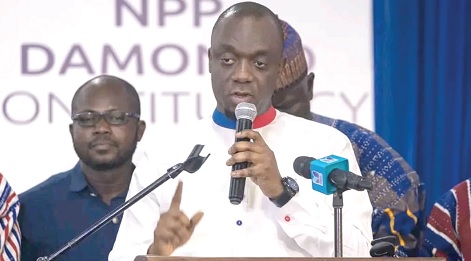The Member of Parliament for Buem and Minister-designate for Youth and Sports, Kofi Adams, has raised concerns about the impact of the Electronic Transaction Levy (E-Levy) on Ghana’s fintech industry and the broader push towards a cashless economy.
Speaking on GHOne TV’s Hard Talk, Mr. Adams reiterated the government’s commitment to reviewing the controversial tax policy.
“The E-Levy has not really helped, even though it is a revenue handle,” Mr. Adams stated. “It has affected the fintech industry and discouraged the transition to a cashless system.”
He explained that the additional charges imposed on mobile money transactions are counterproductive, making cashless payments less appealing. “If I go to buy fuel and pay with mobile money, I get charged extra. But if I take GHS 1,000 in cash and pay, I only pay that amount. Where is the motivation to go cashless when you’re penalized for doing so?”
Mr. Adams highlighted the hidden costs of relying on physical cash, such as the Bank of Ghana’s high expenditure on reprinting worn-out banknotes. “Handling physical cash contributes to dirtying and damaging the money, which means frequent reprinting at a significant cost. A cashless system would mitigate this issue, but the E-Levy discourages it.”
Mr. Adams reaffirmed the government’s promise to scrap the E-Levy, describing it as a policy that has hindered progress in digital transactions. He also mentioned plans to reduce other taxes and cut down on some government expenditures to balance the fiscal situation.
“We intend to keep those promises. If along the line something new comes up, we will consult broadly and manage it,” he assured.
When asked about his readiness to face the Parliamentary Appointments Committee as the Minister-designate for Youth and Sports, Mr. Adams expressed confidence. “These are my colleagues, my friends. I am a member of Parliament, and I am ready to deal with the situation,” he said with optimism.
The debate over the E-Levy continues to dominate public discourse, with many stakeholders awaiting the government’s next steps in addressing its economic impact.
Source: Starrfm.com






























